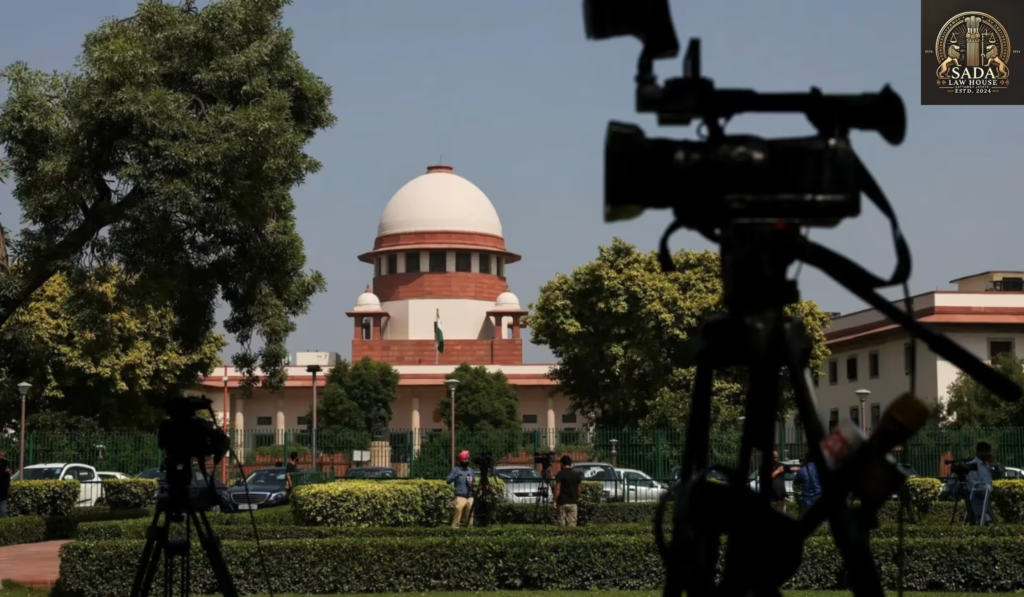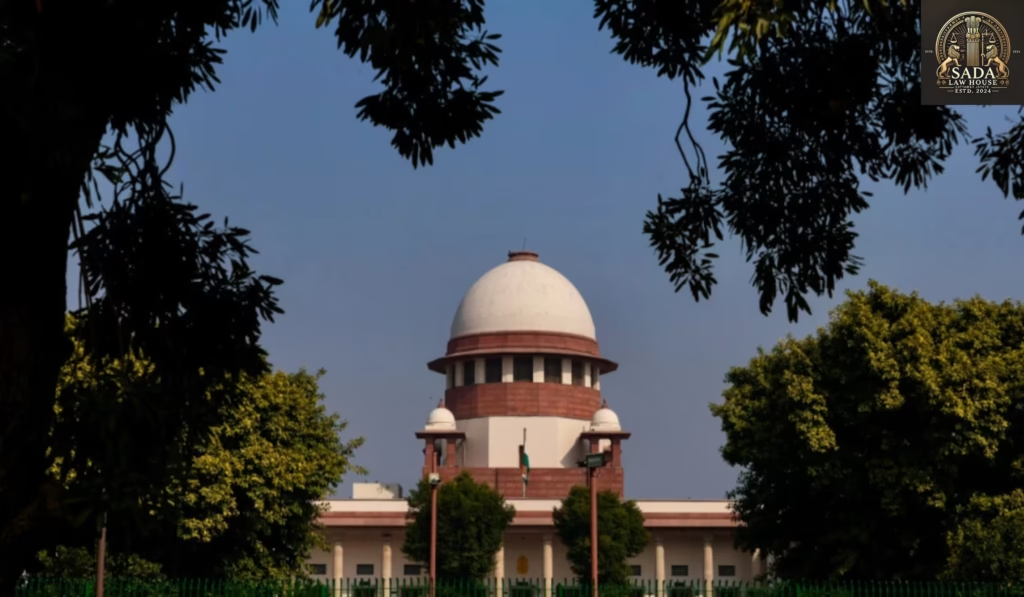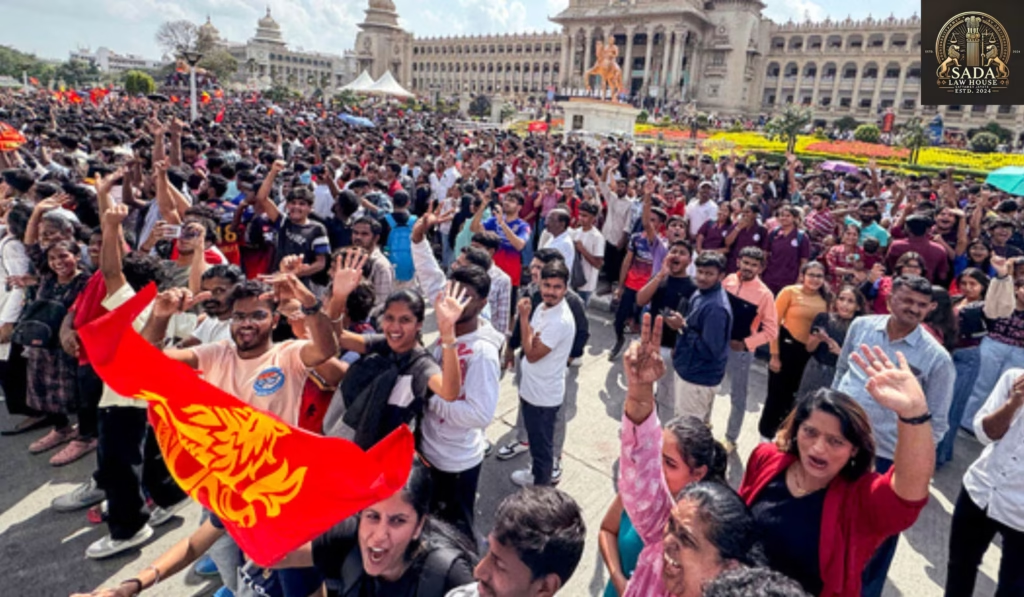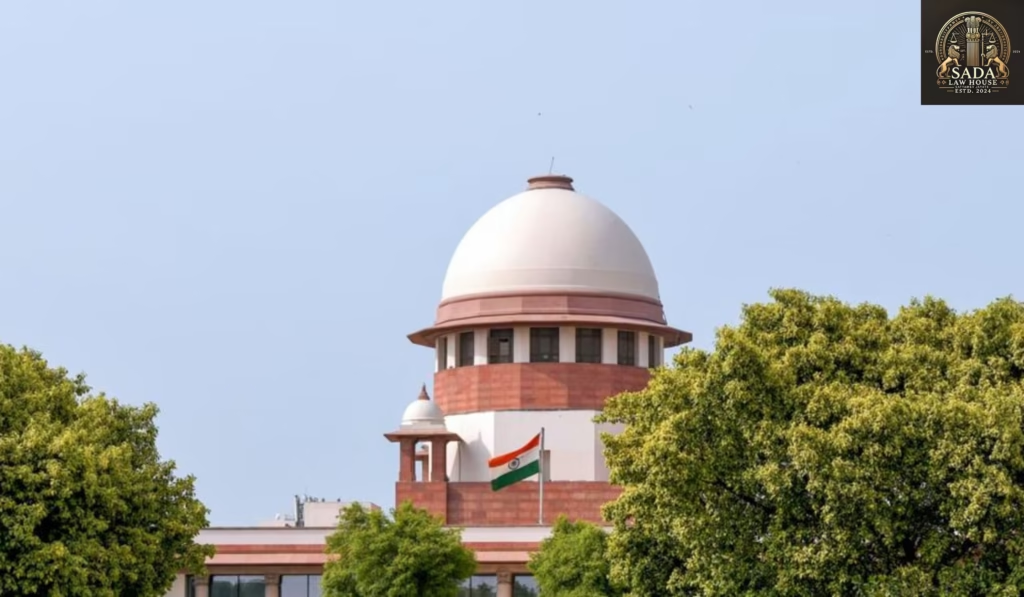Supreme Court Empowers Victims: Right to Appeal Acquittals Confirmed
Trending Today Supreme Court Empowers Victims: Right to Appeal Acquittals Confirmed The Fodder Scam Redux: Supreme Court Revives Corruption Trials in Bihar Ahead of Elections Why the Supreme Court Revoked Bail for Ex-Karnataka Minister Vinay Kulkarni in Murder Case INTERNSHIP OPPORTUNITY AT ECONOMIC LAW PRACTICE Supreme Court Cancels Bail of Congress MLA Vinay Kulkarni in BJP Worker Yogesh Gowda Murder Case Over Witness Tampering INTERNSHIP OPPORTUNITY AT THE CASE LAW Allahabad High Court Grants Relief to BBC Journalist in Mosque Demolition FIR and Passport NOC Case JOB OPPORTUNITY AT LEXLEGIS.AI, DELHI Supreme Court Urges Indian Railways to Adopt Technology for Preventing Cargo Weight Disputes INTERNSHIP OPPORTUNITY AT LAW OFFICES OF PANKAJ ANIL ARORA Supreme Court Empowers Victims: Right to Appeal Acquittals Confirmed Kashish jahan 10 june 2025 The Supreme Court of India confirms that crime victims have the legal right to appeal acquittals. This landmark judgment empowers victims to seek justice independently of state prosecutors and strengthens the Indian legal system. Introduction: A Landmark Moment for Victims’ Rights in India For far too long, crime victims in India have felt sidelined by the justice system—especially in cases where trial courts acquitted the accused. Without a clear right to appeal, many victims were left without recourse. But in a powerful new ruling, the Supreme Court has confirmed that victims can now appeal acquittals, even without state intervention. Supreme Court’s Judgment: Giving Victims a Legal Voice The Legal Background Since a 2009 amendment to the Criminal Procedure Code (CrPC), the right of victims to challenge acquittals has existed in theory. However, it was rarely enforced consistently across courts, leaving a gap in victims’ access to justice. Now, the Supreme Court has clarified that victims of crime have a constitutionally backed right to appeal acquittals, solidifying their role in criminal proceedings. Why This Ruling Matters: Strengthening the Justice System 1. Empowering Victims to Seek Justice This ruling marks a turning point by recognizing victims as active participants in the legal process, not just passive observers. It ensures they have the power to contest judicial outcomes they believe are unjust. 2. Independent of State Prosecution Victims no longer need to rely solely on the state’s prosecution to challenge acquittals. They can now file appeals independently—bringing more balance and accountability to the judicial process. 3. Checks Against Miscarriages of Justice By allowing victims to appeal, the court adds another layer of checks and balances in the system. This is crucial in cases where acquittals may result from flawed trials, weak prosecution, or judicial oversight. Broader Impact: Shaping a More Equitable Legal System This landmark judgment is part of a broader evolution in India’s legal framework. The Supreme Court is sending a strong message that justice is not a privilege—it’s a right. From empowering women and curbing political interference, to reinforcing anti-corruption efforts and upholding victims’ rights, the judiciary is actively reshaping the landscape of Indian law to reflect dignity, equality, and fairness. Conclusion: A New Era of Justice for Victims The Supreme Court’s recognition of victims’ right to appeal acquittals is more than a legal reform—it’s a step toward restoring faith in the justice system. For countless victims, this ruling offers renewed hope for closure and accountability. Justice in India is becoming more inclusive, responsive, and compassionate—and this ruling is a clear sign of progress. Leave a Reply Cancel Reply Logged in as Sada Law. Edit your profile. Log out? Required fields are marked * Message* Case Laws Why the Supreme Court Revoked Bail for Ex-Karnataka Minister Vinay Kulkarni in Murder Case Why the Supreme Court Revoked Bail for Ex-Karnataka Minister Vinay Kulkarni in Murder Case Sada Law • June 10, 2025 • Case law, Live cases • No Comments Supreme Court Judgment on Arbitration Appeals: Limits on Remand and Emphasis on Efficiency in Bombay Slum Redevelopment Case (2024) Supreme Court Judgment on Arbitration Appeals: Limits on Remand and Emphasis on Efficiency in Bombay Slum Redevelopment Case (2024) Sada Law • June 9, 2025 • Case law • No Comments Supreme Court Affirms Divorced Muslim Women Can Claim Maintenance Under Section 125 CrPC Despite 1986 Act Supreme Court Affirms Divorced Muslim Women Can Claim Maintenance Under Section 125 CrPC Despite 1986 Act Sada Law • June 9, 2025 • Case law • No Comments 1 2 3 … 5 Next »
Supreme Court Empowers Victims: Right to Appeal Acquittals Confirmed Read More »










